There are several varieties of MIDI controllers available on the market right now, and each of them is equipped with a range of features and functionalities. However, the functionality of a MIDI keyboard or controller is determined by how many keys it has. How many keys should your MIDI controller have? Well, let’s find out!
MIDI controllers come in various sizes, including 25, 49, 61, or 88 key units. The number of keys you need is based on how you use the controller. 88 keys are useful for full piano pieces, 61 or 49 keys provide immense versatility, and 25 keys are all you need for programming drums or synth loops.
The number of keys that a MIDI controller is equipped with determines how it can be used, and it determines the level to which you will use it. Determining how many keys your MIDI controller should have is important for your creative workflow and for using your musical abilities.
Let’s explore the different options and find out which is best for you.
How Many Keys Do MIDI Controllers Have?
MIDI controllers are very useful tools for making and recording music. The ways that these devices can be used are almost endless because they simply trigger sounds from a separate module or program.
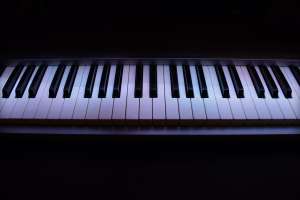
With that being said, every recording space or home music setup should have a MIDI controller of some kind to get the most of the programs and modules used in the setup. To know which MIDI controller is best for you, it is important to first understand what the available options are.
The type of MIDI controller that you use is important. The main options for MIDI controller keys, specifically MIDI keyboards, are 25, 49, 61, and 88 keys. All three options bear their own pros and cons, but the number of keys that your MIDI controller has ultimately determined how functional it is.
The number of keys a MIDI controller has is determined by the octave range of the controller. 25 keys provide notes over two octaves, 49 keys spans four octaves, 61 keys provide a range of five octaves, and 88 keys provide the range of a full-size piano.

There are MIDI controllers that have keys only, and there are MIDI controllers that have keys, pads, dials, buttons, switches, and various other controls as well. This means that the controller that you choose should be decided by what you want to use it for and how functional it is, not only by how many piano keys it has.
The best way to decide how many keys your controller should have is to first determine what you will use it for and what your MIDI requirements are. After that, decide what other auxiliary functions you want the controller to have, and find one that suits your requirements.
Most musicians who play piano prefer MIDI controllers with more keys, as this allows them to play the keyboard like a piano and make music with it, but other musicians prefer fewer keys as they do not play piano and would rather use the controller as triggers for samples such as drum sounds.
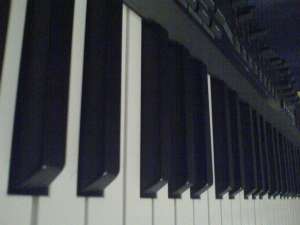
What Are The Benefits Of More Or Less MIDI Keys?
The number of keys that your MIDI controller determines the functionality of the device, but it also comes with some other pros and cons as well. Let’s explore the benefits of the various MIDI controller sizes and examine some of their drawbacks as well.
25 key MIDI controllers are the most compact of all MIDI keyboards. These small controllers provide only two octaves of range, making them relatively limited. However, the advantage of MIDI is that any key can be programmed to sample any sound, which means that while you only have access to 25 keys, you can program those keys to be in any range you want them to be.
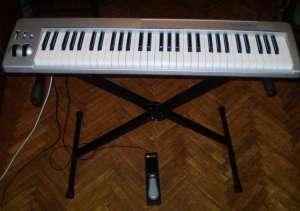
This makes 25 key controllers more useful than some may realize. If you are using the controller for sampling and triggering, then 25 keys may be more than enough for you.
49 keys provide double the range of a 25 key controller with a range of four octaves. Having two more octaves is useful for playing or making music in a wider range without having to program the keys to different registers.
Having more keys also makes the controller more functional as there is more than can be done with a larger number of keys.
61 key MIDI controllers provide a range of five octaves. At this range, a controller can be used to play full pieces in a wide note range, making tracking piano, bass, and even guitar parts much simpler than on smaller controllers.
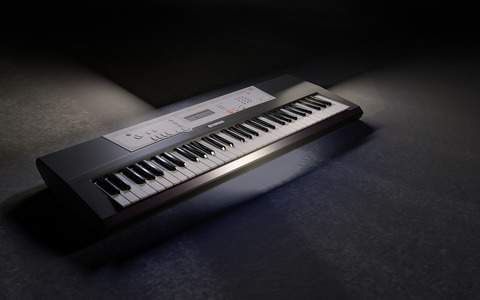
These controllers also leave room to play pieces over three or four octaves and leave space for additional triggers to be programmed with the other keys, making these controllers very versatile.
The 88 key MIDI controller is the most versatile of them all. This controller allows piano players to record full piano pieces without having to change the range of the controller at all. Having 88 keys also means that the programming capabilities are almost endless.
Using a 88 key MIDI controller is the most versatile option, and it is the best option for anyone who plays piano, as it will be used to its full potential.
Larger MIDI controllers also tend to have more real estate on the device, making more room for auxiliary buttons, pads, switches, and controls. This means that larger MIDI controllers come with more functionality than smaller versions, which is particularly useful for recording purposes.
How Many Keys Should Your MIDI Controller Have?
Ultimately we are here to determine how many keys your controller should have, and this decision is a personal choice, but there are some factors that can help you decide.
The first thing to consider is how you will use the controller. When using the controller, will you be playing and recording piano pieces or full musical scores for some other instrument? If you plan to use the controller to play full piano pieces or scores, then using a larger 61 or 88 key controller is the best option for you.
Will you use your MIDI controller only for tracking drum samples, or will you use the controller to play over a wide range of notes while programming music? If you plan on only programming drums or simple bass lines, then a 25 key controller will be more than enough for your requirements.
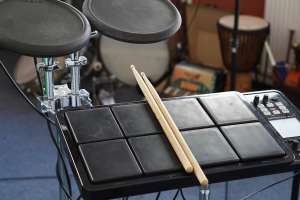
However, if you want the most functionality from your MIDI controller with the widest range of versatility, then a 49 or 61 key controller is likely to be the best option, as these controllers offer the most value for money, and they usually come with several auxiliary controls built into the device.
Conclusion
At the end of it all, the number of keys you should get in a MIDI controller is based on your use for it. Someone who plays the piano will get a lot of use from an 88 key controller, while someone who tracks drums will not need more than 25 keys.
Take the time to determine why you want a MIDI controller and what you will use it for, and make your decision based on what you find. The keys of a MIDI controller are only one aspect of these devices, so be sure to explore all of the controller options available to you before making your decision.

